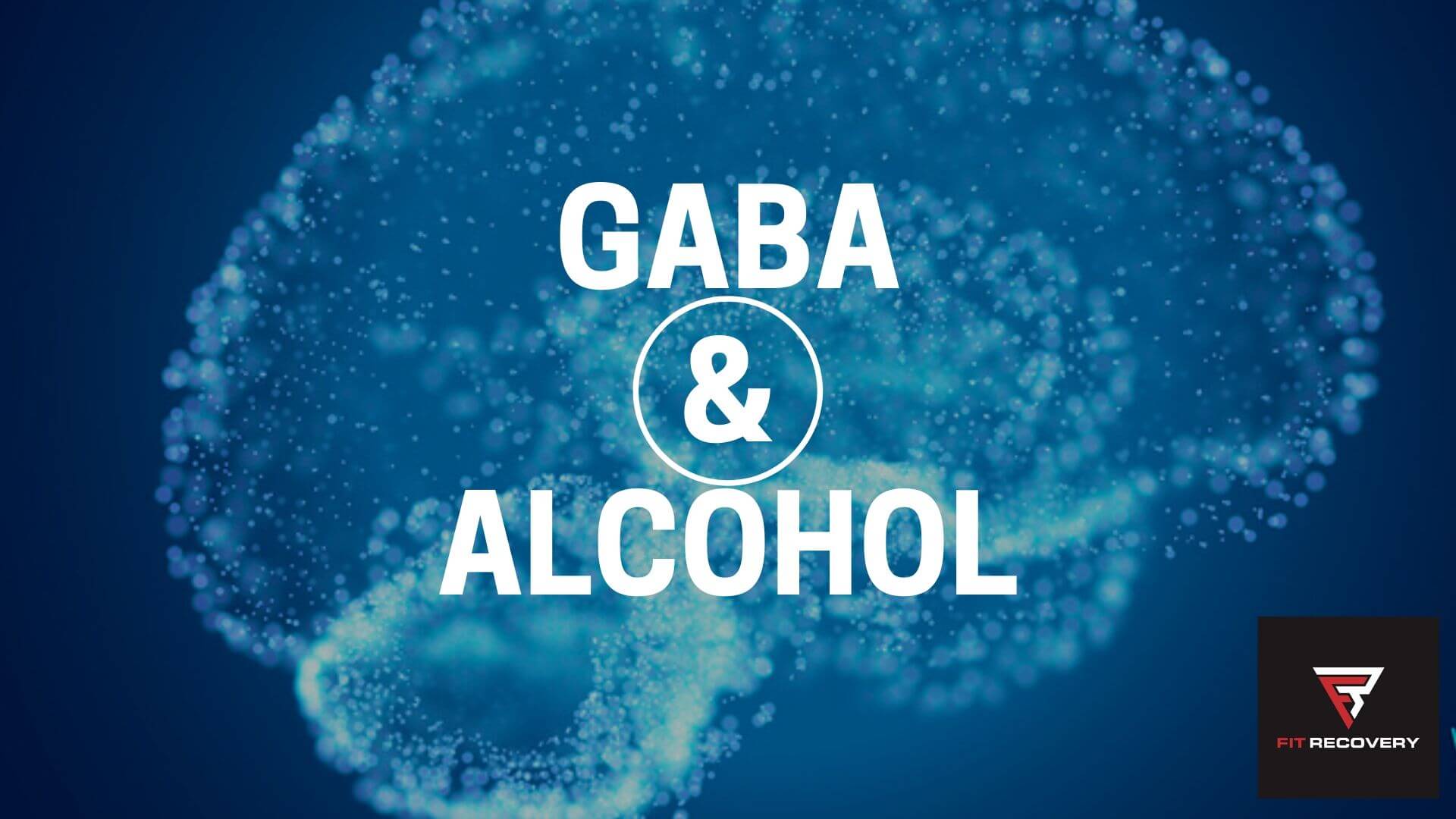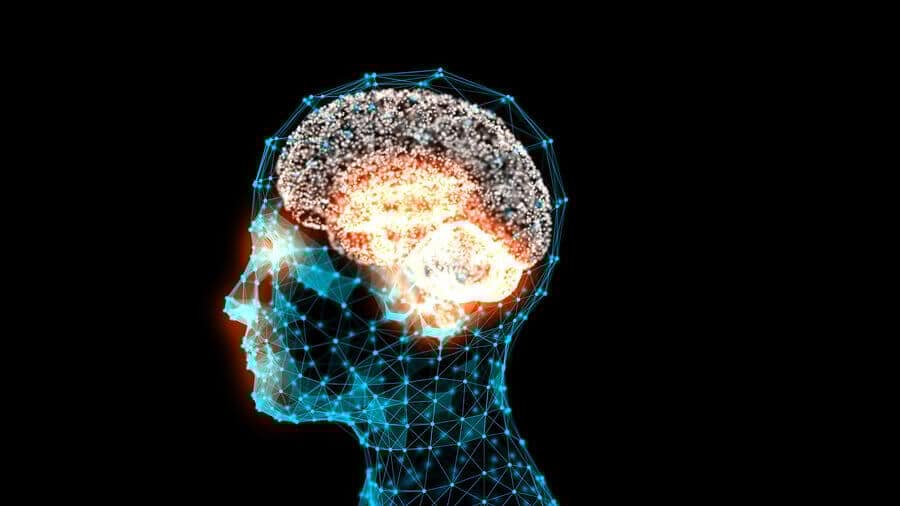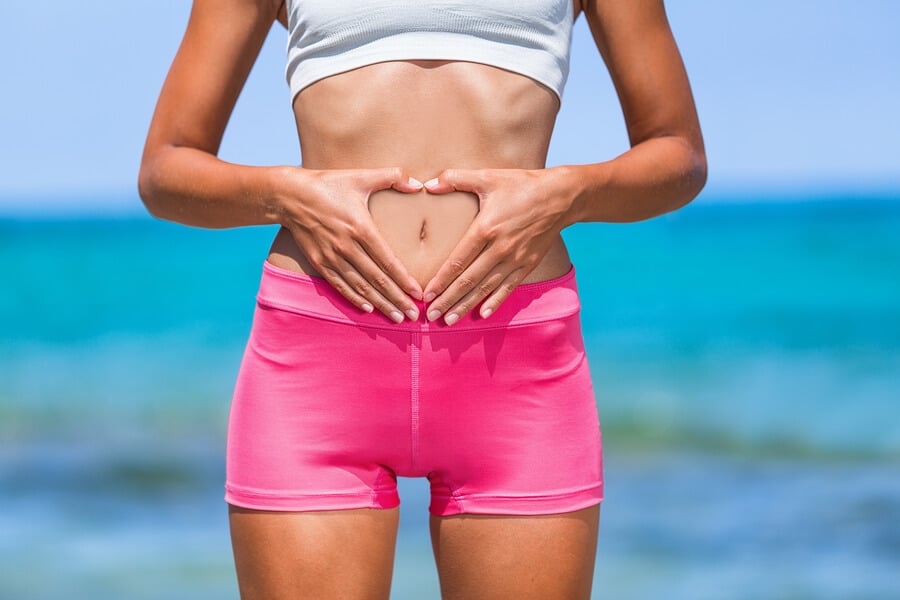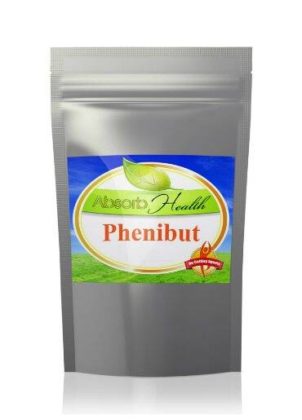It’s amazing to me that I drank for years without understanding anything about the connection between GABA and alcohol. It is perhaps the most important neurotransmitter involved in addiction, and also intuitively the easiest one to understand. People who drink to relax are essentially drinking to activate their GABA receptors.
As we will see in this article, there are other ways to achieve the same effect. These other routes to the same end just don’t get the same kind of funding that beer commercials do. But I digress.

GABA (gamma-aminobutyric acid) is an inhibitory neurotransmitter that dampens activity in the brain and causes a sensation of relaxation. In this article, we will explore the relation between it and alcohol, supplements that might boost GABA, and how to optimize without drinking!
The Role of GABA In Intoxication


When you drink, ethanol molecules mimic GABA, binding to the same receptors and creating the same calming effect as the neurotransmitter. Alcohol also indirectly affects GABA signaling through complex processes that will not be detailed here, since the effect on mood is the same. (source)
Most drinkers subjectively understand the experience of liquor influencing their receptors. Up to a certain point, the outside world seems to slow down to a manageable pace. Eventually, words and movements slur. Too much GABA – or, in this case, too much alcohol – can cause a loss of consciousness.
While alcohol impersonates GABA, it indirectly releases endorphins, dopamine, serotonin, and several other “feel good” neurotransmitters. All of these effects blend into the state of mind that we know as intoxication. I emphasize this so often because as the brain’s foremost calming chemical, it is the one targeted by natural remedies and medications for withdrawal.
As it turns out, many alcoholics may have started drinking excessively because of an inherent deficiency in GABA production. Once dependence occurs, natural production is guaranteed to decline. This is the case because the brain compensates for the repeated presence of alcohol by decreasing natural GABA levels.
As we will see, no one actually needs alcohol forever to maintain the illusion of normal GABA levels. We will discuss herbs, supplements, and medications that can fill in for it while you quit drinking and conquer withdrawal.
Deficiency During Withdrawal


During withdrawal, GABA levels plunge. This is the natural result of having adapted to the presence of liquor by turning the dial down on natural GABA.
Since it regulates a stress chemical in the brain called glutamate, levels of glutamate surge – causing hyperexcitability, nervousness, panic attacks, insomnia, and even seizures in extreme cases.
Glutamate increases electrical activity in the brain. A healthy brain contains GABA and glutamate in balanced levels.
We will now review some supplements and medications that can increase this neurotransmitter’s activity, thereby helping alcoholics to avoid the painful and horrific experience of low GABA and surging glutamate.
6 Ways To Stimulate GABA Receptors Without Drinking
GABA does exist in supplement form, but there is no evidence that it crosses the blood-brain barrier in order to stimulate GABA receptors. Personally, I have never experienced any effect – positive or negative – from taking GABA supplements. I do have friends who swear by them, and there is some speculation that increasing GABA levels in the gut may have a positive effect on mood – even if it does not enter the brain.
When it comes to alleviating the symptoms of withdrawal, it’s imperative to increase GABA levels in the brain.
In order of efficacy, here are the top six ways to increase GABA activity:
1) Benzodiazepines
These are anti-anxiety drugs that must be prescribed by doctors. Benzodiazepines plug into GABA receptors and help with relaxation and sleep. Benzodiazepines can cause severe dependence if used for a long duration.
Even though benzodiazepines are prescription medications, I’ve included them on this list because they are the most commonly used drugs for withdrawal. In a sense, they are simpler than alcohol – because they do not cause the artificial release of other neurotransmitters. Still, the fact that they can be extremely addictive is a reminder of the strength of the GABA (and glutamate) mechanism in our brains.
You can read more about benzodiazepines in these articles:
2) Phenibut
Phenibut is a prescription medication in Europe and Russia, but it is sold as a brain supplement in the U.S. Like benzodiazepines, phenibut activates GABA receptors. It does not cause as much sleepiness because it also releases small amounts of dopamine, leading to a heightened sense of overall well-being.
Phenibut is structurally similar to GABA, with one crucial difference: A phenyl ring that allows it to cross the blood-brain barrier with ease. Phenibut powerfully delivers the effects that many people are looking for when they purchase oral GABA.
Phenibut is the most potent and effective way to increase GABA levels without medications. However, phenibut should be used infrequently and in low doses, since dependence can occur.
I have used 100mg mini-doses of phenibut on many occasions and never experienced any symptoms of dependence. You can learn more about this fascinating supplement in my article: How To Use Phenibut For Alcohol Withdrawal.
C’s Favorite Brand: Absorb Health Phenibut
If you’re past withdrawal and looking to improve your mental performance while conquering occasional moments of discomfort, then check out my article: Five Brain Enhancing Supplements For Cognitive Recovery.
3) Kava
Kava is a root from the West Pacific that has been used for hundreds of years to induce relaxation and talkativeness, and to conduct traditional rituals. Kava contains natural compounds called kavalactones, which stimulate GABA receptors in a similar way as alcohol and benzodiazepines.
Kava does this in a much gentler way than either alcohol or benzodiazepines. It does not feel the same as drinking; rather, it imparts a light buzz and a mildly transcendent feeling. You can read more about kava in my article: How To Use Kava For Alcohol Withdrawal.
C’s Favorite Brand: Top Extracts 70% Kavalactones Kava
4) Passionflower
Passionflower is an herb that stimulates GABA receptors more gently than benzodiazepines, and has been clinically shown to help adults fall asleep more quickly. (source) It is my favorite herb for sleep, since it works so well and a capsule of ground up flowers kicks in almost like a drug.
C’s Favorite Brand: Solaray Passionflower
5) Valerian Root
Valerian root is an herb that contains natural compounds that both enhance GABA and have sedative effects. (source) Because valerian sometimes makes me feel groggy the morning after taking it, I do not use it often. However, many people suffering from withdrawal swear by this herb for helping to stay calm.
C’s Favorite Brand: Solaray Valerian
6) Lemon Balm
Lemon balm is a member of the mint family that contains natural GABA-enhancing compounds that aid in anxiety reduction. (source) It is my favorite herb for relaxation before reading at night, since it does not make me quite as sleepy as passionflower.
C’s Favorite Brand: Nature’s Way Lemon Balm
MANY people who are deficient in natural GABA production have trouble sleeping. If this is the case for you, be sure to check out my review of OTC sleep aids and article on alcohol withdrawal insomnia.
Interactions Between Alcohol And GABA Agonists
Benzodiazepines and all of the supplements listed above can potentially interact with booze, since all of them affect GABA receptors. Caution is also advised for combining oral GABA (not listed above) with alcohol, even though this supplement may not reach the brain.
Interactions between GABA-boosting substances and alcohol will usually involve heightened effects of intoxication. Too much GABA activity can lead to drowsiness, blackouts, loss of consciousness, or coma in extreme cases.
It’s a bad idea to drink while taking benzodiazepines or phenibut. You’re less likely to experience any issues with the gentle herbs, although sedation can still result.
How To Increase GABA Naturally


Medications and supplements are not always the answer to increasing GABA levels. Here are a few activities and lifestyle strategies that have been shown to increase GABA in the short-term, with compounding effects over time:
- Nutrient Repair
- Massage
- Exercise
- Yoga
- Meditation
- More sleep
- Better diet
After I quit drinking, I embarked on a mission to discover the best possible way to live without alcohol. I eventually realized that we view external reality through the lens of our own biochemistry. Cleaning up our lifestyle – and making time to immerse ourselves in activities that we love, on a regular basis – is a crucial part of recovery.
It’s not all pain and sacrifice!
Conclusion
I hope you’ve learned something valuable in this article . I do not wish to de-emphasize the importance of other neurotransmitters, but GABA is certainly one of the most crucial when it comes to dependence.
If you have any questions, please leave them in the comment box below!


Authors
-
Chris Scott founded Fit Recovery in 2014 to help people from around the world dominate alcohol dependence and rebuild their lives from scratch. A former investment banker, he recovered from alcohol dependence using cutting-edge methods that integrate nutrition, physiology, and behavioral change. Today, Chris is an Alcohol Recovery Coach and the creator of an online course called Total Alcohol Recovery 2.0.
View all posts -
Dr. Rebeca Eriksen is the Nutritional Consultant for Fit Recovery. She has a PhD in Nutritional Genetics from Imperial College London, and over ten years of clinical experience designing custom nutritional repair regimens for patients recovering from alcohol addiction. In addition to her work at the exclusive Executive Health clinic in Marbella, Spain, she helps to keep Fit Recovery up to date with emerging research.
View all posts









I suddenly developed the total inability to feel the effects of alcohol. No matter how little or much or what alcohol. Not a single buzz. Doesn’t even taste the same. I also have a problem with constant flat mood/anhedonia. Nothing gives me endorphins, pleasure, excitability feelings. What’s causing the alcohol thing? I’ve never had it before, not even when I had higher tolerance. Could I have a deficiency in GABA? Or too much? A chemical imbalance of some sort.
Hi Sarah, are you taking any medications? If so, I would look at the side effects for those. You could be low in dopamine, incorporating supplements like DLPA and Tyrosine could be beneficial. GABA could also be very beneficial. Always speak with your doctor before adding new supplements to your diet.
How do you know if a person has an inherent deficiency in GABA production? Are there supplements to help maintain normal level of GABA on an ongoing bases?
I stumbled on this site after deciding my body had had too much. I’ve been drinking heavily for about 6 months now (also on and off for several decades) and recently began experiencing several of the symptoms of AWS (tremors in the morning and sweating at night primarily) I began a program of tapering today including a consumption log and a gratitude diary. At what point after I stop drinking during the day would you recommend I take a GABA supplement such as passionflower? This is a fantastic site with all the nutritional science-based advice! I’m blessed to have found… Read more »
Chris. Thank you for this information. I have a peculiar diagnosis post alcohol recovery for 3 1/2 years now. I have hypersomnolence. Last year it got so bad, I had a sleep study which confirmed this dx and I have been placed on adderall. It is the lowest dose possible but I pride myself on being healthy and would prefer to function without medication. I’ve been thinking about experimenting with GABA even though I have the sleepiness. I personally believe I have shifted consciousness. Recovery has truly heightened my spirituality. I exercise, eat well, practice yoga, meditate and take proper… Read more »
Congrats on 3 1/2 years, that’s awesome Jen! I obviously can’t give medical advice as I’m not a doctor but if I were in this situation, I’d look into amino acids targeting neurotransmitters associated with wakefulness (dopamine, norepinephrine, etc.). Only issue is that these amino acids may interact with any drugs that target the same neurotransmitters. But it’s worth looking into; all of these amino acids are discussed in my course among other resources. Good luck to you!
Thanks for the info. I read that Kava is bad for the liver. I;m pretty sure my liver is beat up already, I am wary of trying Kava. What’s your take on that? Thanks.
You’re very welcome Albert! The leaves of the kava plant are toxic – only the roots should be used. A decade or so ago, a German company sold powder containing the leaves as well as roots, and people got very sick. As far as I know, this is where the “kava connected to liver damage” comes from. Studies have since shown that kavalactones on their own do not cause liver damage, and kava is now sold in Whole Foods. I’ve used kava numerous times and never had a problem. But it’s a good thing to know about – quality is… Read more »